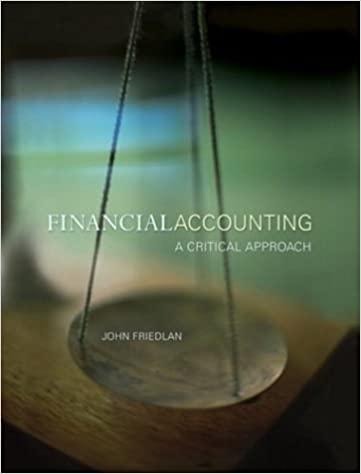(Observing the effects of different revenue-recognition methods on financial ratios, LO 1, 2, 3, 4, 5, 6)...
Question:
(Observing the effects of different revenue-recognition methods on financial ratios, LO 1, 2, 3, 4, 5, 6) On, July 15, 2005 Tidnish Vessel Refitters Ltd. (Tidnish)
signed a contract to refit a 25-year-old supertanker to meet new environmental standards and operate more efficiently. Tidnish has provided you with the following information about the contract:
i. Tidnish expects the refitting to take three years.
i. Tidnish will receive $25,000,000 for the refitting. Tidnish will receive payments on the following schedule:
© $5,000,000 when the contract is signed.
¢ $6,000,000 on June 1, 2006.
e $10,000,000 on February 1, 2007, the expected completion date of the project.
e $4,000,000 on August 15, 2008.
. The total cost of the renovations is expected to be $16,000,000:
e 2005: $0 2006: $10,000,000 e 2007: $6,000,000 e 2008: $0 iv. Other costs associated with the contract are $2,000,000 in each of 2006 and 2007. These costs are treated as period costs in the calculation of income.
v. Tidnish’s year end is July 31.
il ee Required:
a. Calculate revenue, expenses, gross margin, and net income for each year using the following revenue-recognition methods:
i. Percentage-of-completion.
ii Completed-contract iii. Cash collection. (Hint: match expenses based on the proportion of cash collected in each year).
iv. Calculate the gross margin percentage and the profit margin percentage for each year.
b. Does it matter how Tidnish accounts for its revenue from the refitting contract?
To whom does it matter and why?
c. Is the actual economic performance of Tidnish affected by how it accounts for the revenue from the refitting contract? Explain.
Step by Step Answer:






